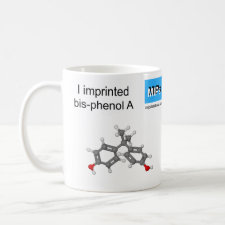
Authors: Kamel AH, Jiang XJ, Li PJ, Liang RN
Article Title: A paper-based potentiometric sensing platform based on molecularly imprinted nanobeads for determination of bisphenol A.
Publication date: 2018
Journal: Analytical Methods
Volume: 10
Issue: (31)
Page numbers: 3890-3895.
DOI: 10.1039/C8AY01229F
Abstract: Currently, the electrode substrates of solid-contact potentiometric sensors for bisphenol A (BPA) are usually expensive glassy carbon, gold or platinum. This poses serious limits to the wide use of these sensors, especially in less developed countries. Herein, we present for the first time a simple and ultra-low-cost, disposable paper-based potentiometric sensor for determination of neutral BPA. Uniform-sized molecularly imprinted nanobeads are utilized as a recognition receptor to provide a higher affinity for BPA since they have larger binding capability and can be well dispersed in the polymeric membrane potentiometric sensor. Commercially available chromatography paper is used as the electrode substrate to build the sensor. It has been found that the proposed paper sensor exhibits similar analytical performance to the classical glassy carbon-based sensor. The present sensor shows a linear anionic potential response over the concentration range from 0.5 to 13 μM with a detection limit of 0.15 μM and exhibits good selectivity over other phenols. The proposed sensing platform has been successfully applied to determination of BPA released from real plastic samples
Template and target information: bisphenol A, BPA



Join the Society for Molecular Imprinting

New items RSS feed
Sign-up for e-mail updates:
Choose between receiving an occasional newsletter or more frequent e-mail alerts.
Click here to go to the sign-up page.
Is your name elemental or peptidic? Enter your name and find out by clicking either of the buttons below!
Other products you may like:
 MIPdatabase
MIPdatabase









